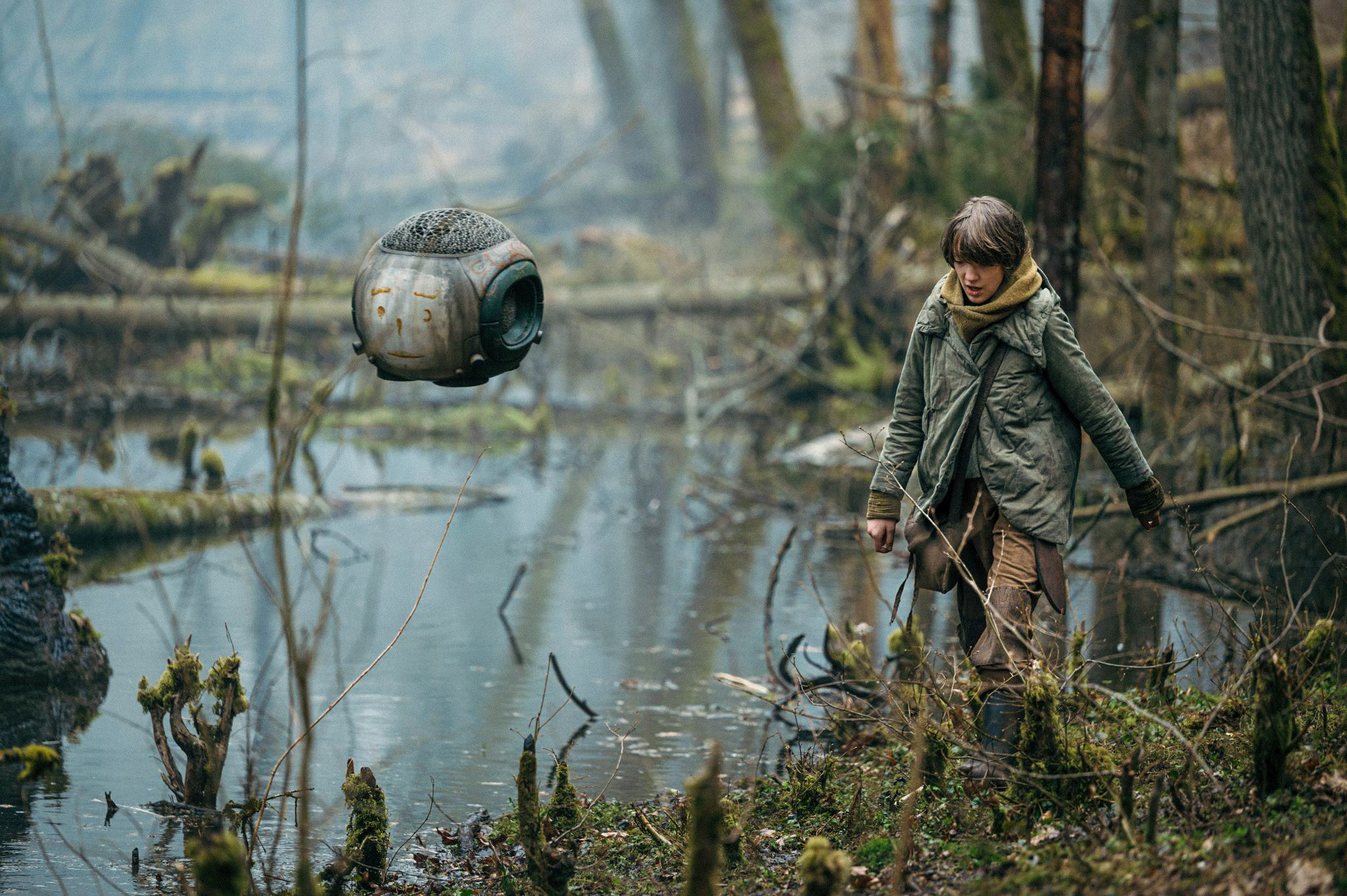“In a world devoured by silence and thorns, one girl holds the code to a second chance.”
In “Vesper” (2022), directors Kristina Buožytė and Bruno Samper conjure a haunting sci-fi world where nature has mutated into both marvel and menace. Earth lies poisoned after ecological collapse; humanity clings to life in scattered pockets, divided between powerful citadels and those left to scavenge among strange, living landscapes.
At the film’s core is Vesper (Raffiella Chapman), a brilliant 13-year-old girl surviving with her paralyzed father in a decaying forest alive with bioengineered life. Vesper dreams of unlocking seeds that could revive the world, driven by quiet defiance and aching hope.

Visually, “Vesper” is hypnotic: towering alien flora, spores drifting like stardust, and eerie bioluminescence. The cinematography weaves a tactile reality—muddy, damp, yet touched by fleeting beauty. Every frame feels as if nature is watching.
When Camellia (Rosy McEwen), a mysterious woman from the citadels, crash-lands into Vesper’s life, secrets unravel. Their bond hints at trust but also danger, as Vesper realizes survival may demand sacrifice and courage beyond her years.

“Vesper” unfolds with gentle urgency. Action sequences exist, but the true tension lies in whispered conversations and silent stares across moss-covered ground. The film avoids sci-fi bombast, choosing instead to explore humanity’s resilience and the fragile spark of hope in a poisoned world.
By the end, “Vesper” doesn’t promise salvation. But it leaves us with a seed—a belief that even amidst decay, life yearns to grow anew.



